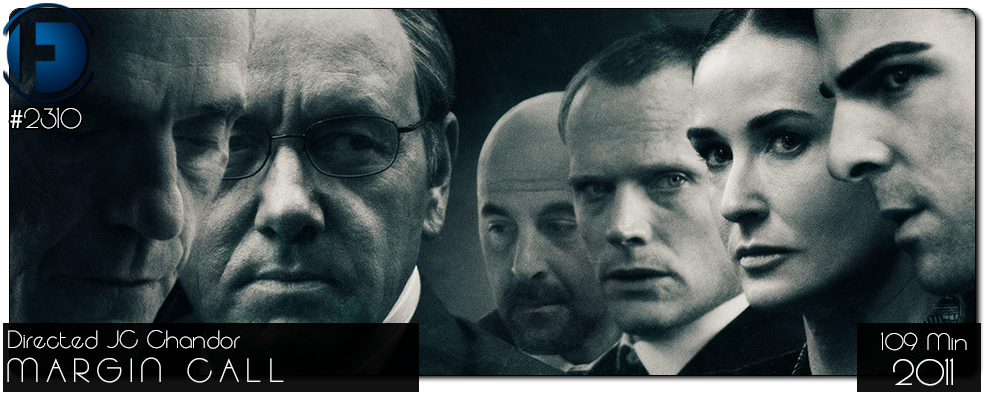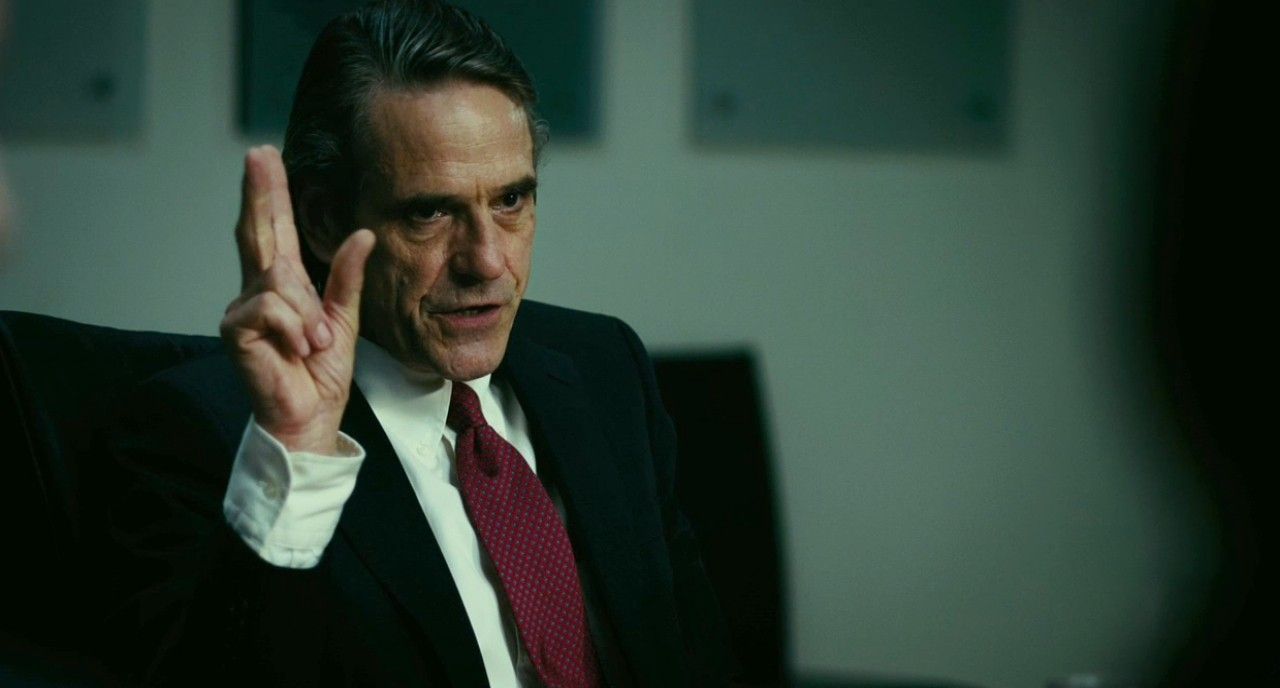Movie Review – Margin Call

Principal Cast : Kevin Spacey, Paul Bettany, Jeremy Irons, Zachary Quinto, Penn Badgley, Simon Baker, Demi Moore, Stanley Tucci, Aasif Mandvi, Ashley Williams, Mary McDonnell, Susan Blackwell.
Synopsis: Follows the key people at an investment bank over a 24-hour period during the early stages of the 2008 financial crisis.
********
One of the great unfair things in recent modern history was the 2008 financial crash, better known by poor folks like me as The Global Financial Crisis, the GFC. Naming something so awful with a vaguely Roald Dahl-ian nomenclature notwithstanding, the GFC devastated much of the world’s financial institutions, caused untold middle and low-income families to lose everything, and was seen by many to be caused by one particular entity: US-based hedge funds. The fallout from the GFC was protracted, as Governments and regulatory agencies – not to mention average Joes on the street – looked for people to blame, and despite innumerable investigations, lawsuits and Federal indictments, only one person ever went to prison over one of the biggest financial crashes in living memory. That fact, that almost nobody directly involved ever saw the inside of a prison, and that most of the firms directly (or indirectly) involved in the crash survived and have gone on to become more powerful than ever, is something that continues to make my blood boil to this day.

In the decades since, there have been a number of high-profile feature films dedicated to recounting the events surrounding the ’08 crash, perhaps most notable being Oscar-darling The Big Short, while the Emmy-winning HBO film Too Big To Fail, released in 2011, remains a close second. Margin Call is another 2011 film on the subject, although it’s more a character study of human fallibility than a specific dissection of the GFC; the film’s story could be any time, or anywhere – it’s set in New York City, but that fact seems redundant most of the time – and sees a tremendous cast doing brilliant work with a tense, talky, exposition-heavy script and JC Chandor’s wonderfully precise direction. Set in an unnamed investment bank, Margin Call sees Kevin Spacey play Sam Rogers, a trading boss on one of the floors who is overseeing the laying off of most of his staff, due to cutbacks. After the sudden retrenchment of risk analyst Eric Dale (Stanley Tucci), young broker Peter Sullivan (Zachary Quinto) is handed a file of a potentially life-altering formula that depicts a devastating, imminent, and total, financial crash for the firm. Peter reports it up to his boss, Will Emerson (Paul Bettany), who then reports it to Sam, who takes it to the executive suite and Jared Cohen (Simon Baker), before the firm’s CEO, John Tuld (Jeremy Irons) is called in to try and salvage the situation. As the night grows shorter, and the inevitable collapse begins, who will be left standing when the smoke clears.

Margin Call is a tremendously acted, directed and written film. It might make for a superb stage production, with its relatively small location, complex ensemble and interactions between them, and the film showcasing the extraordinary talents assembled by Chandor and his production team. It’s an “actors” film, really, and the end result is a film less interested in showy visuals or snappy pop-culture banter (hear that, Adam McKay?) and more about the humanity behind what many perceive as one of the world’s great injustices. Within the framework of the story we have those who are morally corrupt, those for whom their actions cause significant consternation, and those who cannot escape the gravitational pull of inexorable ethical doom. The story rests not so much on the details, but the interactions between these fascinating characters. The formula and exact magnitude of the disaster is conveyed in oblique terms throughout, resulting in the GFC, which isn’t specified by name, to lurk off the edges of the frame in the shadows, hindsight for the viewer being an incredibly powerful tool hoping against hope that these dudes can pull off a miracle and escape it. We know they won’t, of course, but there’s a dramatic tension as the dreadful knowledge begins to leak into their perfectly sculpted – but incredibly frail – world. Chandor directs his own Oscar-nominated screenplay and he pulls it off superbly, with a precision and potency of vision that augments the spoken word and the terrific acting throughout.

Kevin Spacey, love him or hate him, is magnificent here, as he usually is on the screen. As Sam he provides about the only real moral person among the ensemble, as he grapples with guilt over what the firm’s action have led to, and will lead to, should it proceed forward with their plan to sell of most of their stocks. Spacey delivers an emotionally charged performance that anchors the rest of this cast, alongside a waifish Paul Bettany, a terrific Zachary Quinto, and a very Scrooge-like Jeremy Irons. Watching Irons and Spacey collide in their scenes together is fascinating, while the likes of Simon Baker, Stanley Tucci and Penn Badgley provide some serious heavy lifting in more minor roles. About the only weak spot in the film comes with Demi Moore, who plays a hard-nosed firm boss in Sarah Robertson, and I found her performance here quite wooden, and lacking in… I don’t know, grace? I’ve always considered Moore to be a relatively weak actress who has carved a career performing alongside decent talent in her various film endeavours, but she cannot hold a candle to the men around her in this. An elevator scene between her and Simon Baker is stark with the differences in their screen chemistry and talent – Baker comes off as diffident yet charismatic, while Moore’s turn feels like she’s reading from cue-cards off-camera and only half-remembers what she’s supposed to be doing. Maybe it’s just me, maybe it’s the direction, but I would argue that of all aspects of the film one might criticize, her acting is at the top of a very short list.

This film is rage-inducing in its portrayal of the cavalier attitude towards money and financial security displayed by this non-specific financial institution. That it so immediately makes your blood curdle at the thought of actual firms doing this kind of thing – whispers that a lot of the story was based on the actions of US-based firm Lehman Brothers have been refuted by both the director and others since – is testament to Chandor’s powerful ability to craft tension, legitimate tension, out of something so acutely mundane as trading stocks. Had it not happened in real life you’d call this film “far fetched”, but it isn’t. Margin Call should be watched often, and examined a lot, by those seeking to get into finance out of University, as a cautionary tale. Sadly, I fear, it’s seen as something of a playbook for modern banking institutions in the years since. The film, however you feel about banks, finance and asshole stockbrokers, is fantastic.
